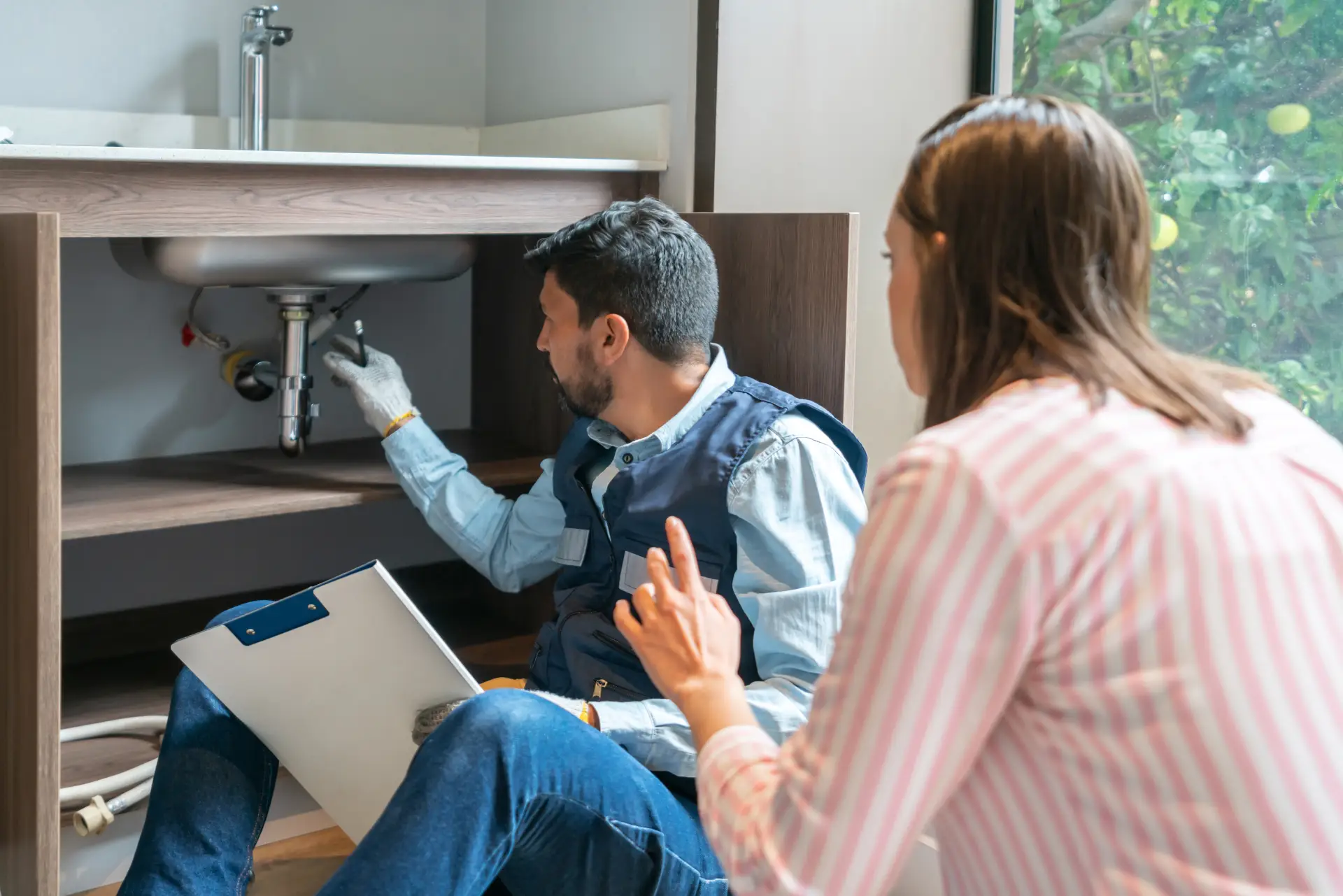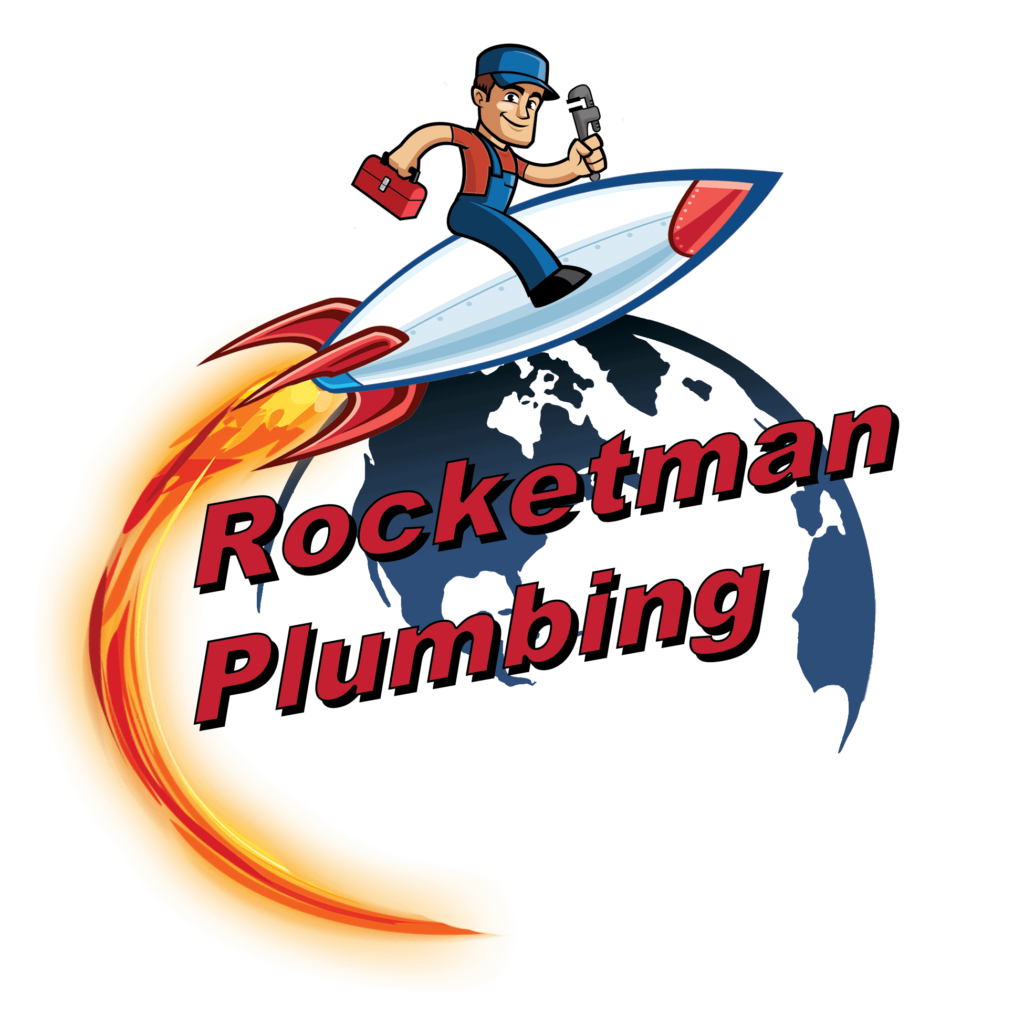
Plumbing problems have a way of sneaking up on you. One day everything seems fine, and the next you’re staring at water stains on your ceiling or dealing with a toilet that won’t stop running. The truth is, most plumbing disasters don’t happen overnight—they build slowly until something finally gives. That’s where a plumbing inspection comes in.
A professional plumbing inspection is like a checkup for your home. Your plumber goes behind the walls, under sinks, and even into the sewer line to find issues before they blow up into expensive emergencies. If you’ve ever wondered what actually happens during an inspection (and whether it’s worth it), here’s the inside scoop.
Why Plumbing Inspections Matter
Think of an inspection as a safeguard against plumbing nightmares. Regular inspections can:
- Catch small leaks before they turn into floods
- Protect floors, walls, and foundations from hidden water damage
- Keep water heaters, pipes, and drains working efficiently
- Save you thousands in repairs down the road
Skipping inspections might feel like no big deal—until you’re the one calling for an emergency plumber at 3 a.m.
Types of Plumbing Inspections
Not every home needs the same level of inspection, but here are the main methods plumbers use:
- Conduct visual inspections: Checking exposed pipes, faucets, toilets, and shut-off valves for leaks, corrosion, and wear.
- Perform functional testing: Running water in sinks, tubs, and showers to check flow, water pressure, and drainage.
- Evaluate the water heater: Looking for rust, leaks, or failing components, and confirming the system heats safely and efficiently.
- Run sewer line camera inspections: Snaking a camera through sewer lines to find root intrusions, cracks, or collapsed pipes.
- Use leak detection tools: Using electronic sensors or dye tests to find leaks hidden in walls, ceilings, or under slabs.
A basic inspection covers the essentials, but advanced tools allow a deeper dive when warning signs are present.
What Gets Checked During an Inspection
Your plumber will go room by room, covering every fixture and pipe.
- Kitchen: Sink, faucet, garbage disposal, and drain connections
- Bathrooms: Toilets, showers, tubs, and sinks—including tank components and drainage
- Laundry Area: Washer hoses, standpipes, and drains
- Water Heater: Tank or tankless unit, relief valves, and supply lines
- Basement/Crawlspace: Lines checked for rust, leaks, or poor installation
- Exterior: Main shut-off valve, faucets, sewer line, and visible cleanouts
No corner of your plumbing system is left out—the goal is to spot anything that could cause problems now or in the near future.
Common Problems Found During Plumbing Inspections
One of the biggest benefits of a plumbing inspection is finding problems before they spiral out of control. Some of the most common issues plumbers uncover include:
- Hidden leaks: A slow drip behind a wall can turn into a major nightmare with soaked drywall, ruined flooring, costly pipe repairs, and entire sections of your home needing to be torn out and rebuilt.
- Corroded pipes: Older homes often have galvanized steel or cast-iron pipes that wear down over time, leaving you at risk of leaks or bursts.
- Water heater troubles: Rust, sediment buildup, or failing valves are red flags that your water heater could give out sooner rather than later.
- Drainage issues: Slow drains, gurgling sounds, or foul odors often point to partial clogs, venting problems, or even tree roots in the sewer line.
- Water pressure problems: Low pressure can mean buildup or leaks; high pressure strains pipes and appliances until something breaks.
- Outdated fixtures: Worn-out shut-off valves, old supply lines, and dripping faucets aren’t just annoying—they can cause serious damage if ignored.
How Long Does a Plumbing Inspection Take?
Most plumbing inspections take one to two hours. The exact time depends on:
- Size of the home – small condos may take under an hour, while larger homes take longer
- Age of the property – older materials often need closer examination
- Accessibility – hard-to-reach valves or crawlspaces can add time
A thorough inspection is well worth the small amount of time and money it requires.
How to Prepare Before Your Plumber Arrives
You don’t have to do much, but a little preparation goes a long way:
- Provide clear access to sinks, toilets, and the water heater
- Write down any odd symptoms you’ve noticed—like gurgling drains or low pressure
- Locate your main shut-off valve so the plumber can test it if needed
The easier it is for your plumber to reach everything, the more efficient the inspection will be.
What Happens After the Inspection
When the walkthrough is complete, your plumber will go over the findings with you. Expect a breakdown that covers:
- Urgent issues that need attention right away
- Preventive maintenance recommendations
- Upgrade options for efficiency and reliability
You’ll also get estimates for repairs or improvements so you can plan ahead instead of being blindsided by emergencies.
How Often Should You Have a Plumbing Inspection?
For most homes, once a year is a good rule of thumb. You’ll want to schedule an inspection sooner if:
- Your home is more than 20 years old
- You’ve had recurring clogs or leaks
- You’re buying or selling a property
- You notice warning signs like damp spots, bad odors, or fluctuating pressure
Annual inspections are far cheaper than water damage restoration or emergency sewer repairs.
DIY vs Professional Inspections
Sure, you can check for visible leaks under sinks or test water pressure at a faucet. But without tools like sewer cameras or leak detectors, there’s only so much you’ll catch. A professional inspection gives you peace of mind that your entire system—both the parts you see and the parts you don’t—has been thoroughly checked.
Call Rocketman Plumbing for Your Next Inspection
The best way to avoid plumbing emergencies is to stop them before they start. At Rocketman Plumbing, our inspections are detailed, efficient, and designed to keep your home safe from costly surprises.
Don’t wait for leaks, clogs, or water damage to make themselves known. Call Rocketman Plumbing in Albuquerque today at (505) 243-1227 to schedule your plumbing inspection or reach out online. We’ll make sure everything is flowing exactly the way it should.
